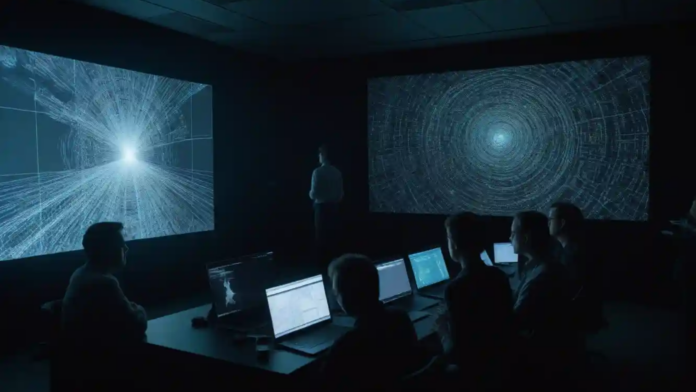In a groundbreaking development for the tech world, Magic, an innovative AI startup focusing on code generation and software development automation, has just announced a staggering $320 million investment round. This impressive funding comes from a star-studded lineup of investors, including former Google CEO Eric Schmidt, financial powerhouse Jane Street, and tech giants Sequoia and Atlassian, among others.
The latest cash injection propels Magic’s total funding to an eye-watering $465 million, firmly establishing it as a frontrunner in the rapidly evolving field of generative coding. This puts Magic in the same league as other well-funded startups like Anysphere, Codeium, and Augment, all of which are racing to redefine the landscape of software development through AI.
But Magic isn’t just stopping at securing funds. The company has also unveiled an exciting partnership with Google Cloud, aimed at building two cutting-edge “supercomputers” on the Google Cloud Platform. These aren’t your average machines – we’re talking about seriously powerful hardware designed to push the boundaries of AI capabilities.
The first of these supercomputers, dubbed Magic-G4, will harness the power of Nvidia’s H100 GPUs, known for their exceptional performance in AI and machine learning tasks. But it’s the second supercomputer, Magic-G5, that’s really turning heads. This beast will be built using Nvidia’s next-generation Blackwell chips, promising unprecedented levels of computing power.
Magic’s ambitions don’t end there. The company has plans to scale up the Magic-G5 cluster to include “tens of thousands” of GPUs over time. This massive computing power will be crucial in training and running the complex AI models that Magic is developing.
Eric Steinberg, Magic’s co-founder and CEO, expressed his enthusiasm about the partnership: “We are excited to partner with Google and Nvidia to build our next-gen AI supercomputer on Google Cloud. Nvidia’s [Blackwell] system will greatly improve inference and training efficiency for our models, and Google Cloud offers us the fastest timeline to scale, and a rich ecosystem of cloud services.”
This development comes at a time when the tech industry is buzzing with excitement about the potential of AI in coding. The idea of AI assistants that can generate code, automate routine tasks, and even predict potential bugs is no longer science fiction – it’s rapidly becoming reality. Magic’s substantial funding and ambitious hardware plans suggest that the company is positioning itself to be at the forefront of this revolution.
The implications of Magic’s work could be far-reaching. If successful, their AI models could dramatically speed up software development processes, potentially making coding more accessible to those without traditional programming backgrounds. It could also free up experienced developers to focus on more complex, creative aspects of software design, while AI handles more routine tasks.
However, as with any major technological advancement, there are likely to be challenges and questions to address. How will the rise of AI coding assistants impact the job market for human programmers? What safeguards will be put in place to ensure the code generated by AI is secure and ethical? These are questions that Magic and other companies in this space will need to grapple with as their technologies evolve.
Despite these potential hurdles, the excitement surrounding Magic’s announcement is palpable. The involvement of high-profile investors like Eric Schmidt and established tech companies like Atlassian suggests a strong belief in the potential of AI-powered coding.
As Magic moves forward with its ambitious plans, the tech world will be watching closely. Will their supercomputers and AI models live up to the hype? Could this be the beginning of a new era in software development? Only time will tell, but one thing is certain – with $465 million in funding and some of the most powerful computing hardware at their disposal, Magic is well-positioned to make a significant impact on the future of coding.
For now, developers and tech enthusiasts alike can look forward to seeing what Magic will conjure up next. As the lines between human and AI-generated code continue to blur, we may be on the cusp of a truly magical transformation in the world of software development.











